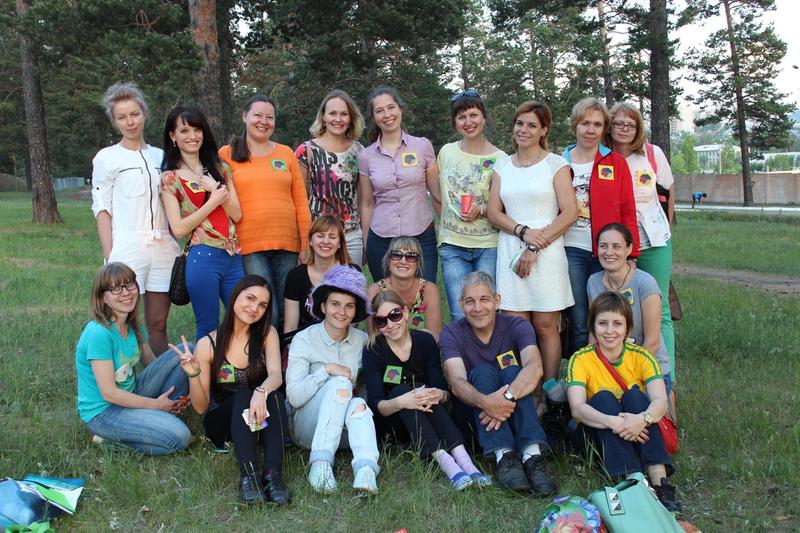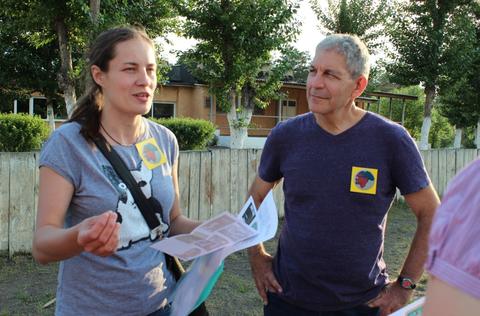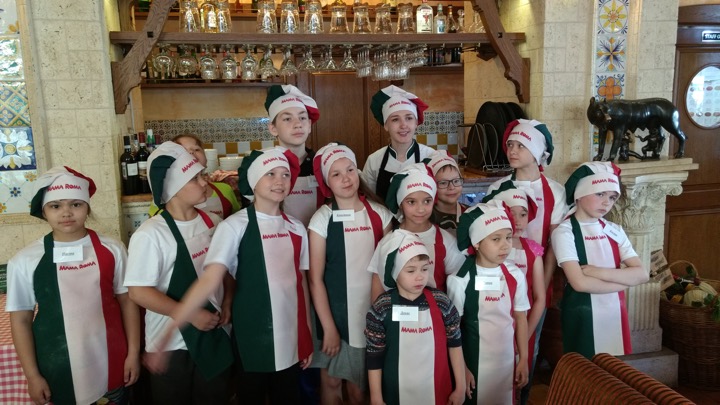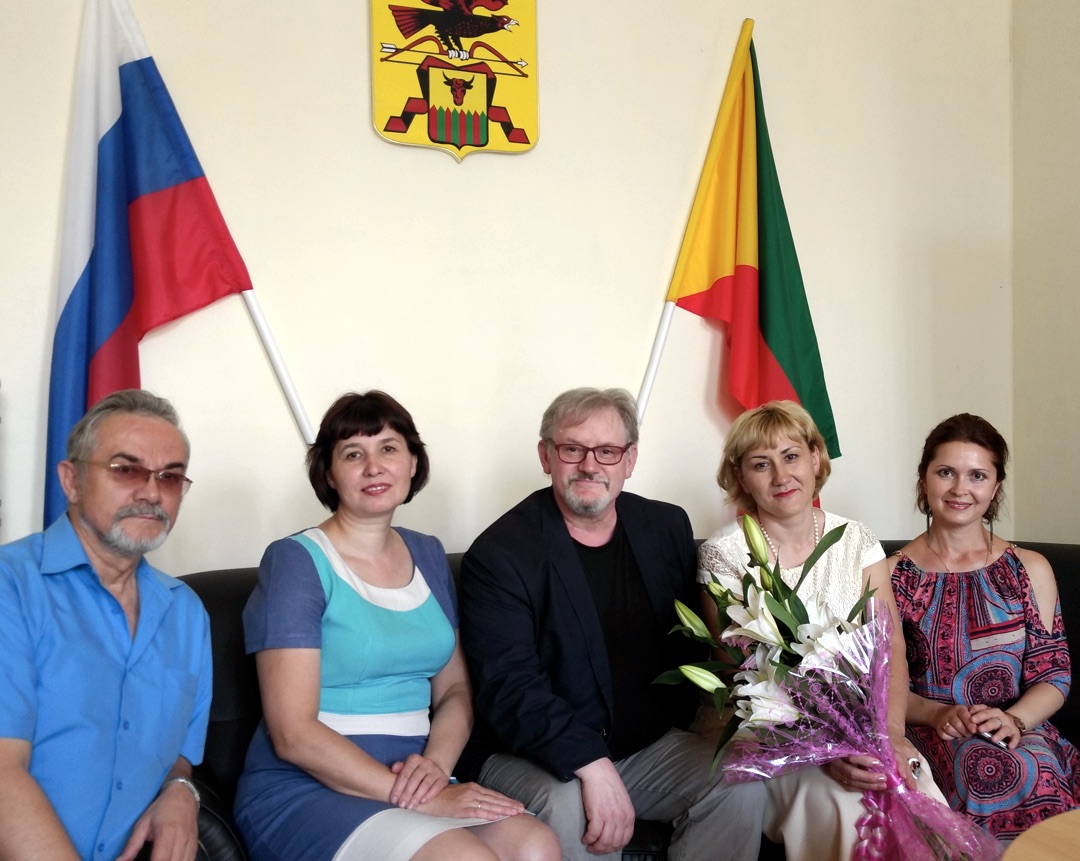John Crust talks about his visit to Chita
I had never been a counselor at a summer camp, and I often felt I missed out on something special. When an opportunity came up to work at a camp, an inner voice told me, yes, this is something I want to do. Of course, I have to do things the hard way. I had to do it in Russian (and I don’t speak Russian), in the far reaches of Siberia.

They wanted an English teacher somewhere near Mongolia, near China, five nights on the Trans-Siberian Railway from Moscow. Amid the mystery that embraces Russia, the land, the people, in the shadows of Tolstoy, Chekhov, Lenin, Stalin, I was welcomed into an extended camp family, a beloved camp community, nestled in a picturesque forest that bespoke the wilds and beauty of Siberia. This was a former Communist youth camp, which still held a certain edge and formality from that bygone era, not far from the city of Chita.
A veil of tranquility laced the landscape, sometimes with a subtle or not so subtle mist hovering over a gallery of green and brown splendor nature put on display. Then, a song belted out from monster speakers set up in front of the dining hall or at the camp’s amphitheater. “I feel nice, you look nice… Hey, where’d you get that body from?… I got it from my daddy, I got it from my daddy…” And the dance moves the kids and the counsellors let loose – smooth, slick, in sync. I was in awe. This is Siberia?
The kids, flashing an urban cool, with T-shirts proclaiming “Create Your Best,” “Los Angeles City,” “Love Your Self,” “Normal People Scare Me,” and “Disobey,” held the hip look any typical Canadian or American teenager would carry. A team of music people worked their digital wizardry, pumping out catchy tunes that framed the day, songs I had never heard before, but learned to love. Dance and music shaped the camp experience. It was great. I got an education in contemporary music (I obviously needed to move beyond that ’70s, ’80s, and ’90s radio comfort zone). I learned about K-pop and dubstep. I told the kids about Motown and disco and Neil Young, the celebrated rock-star dropout at my high school, Kelvin, in Winnipeg, Canada.
I was a curiosity. Some of the campers had a good command of English, but most of them didn’t. Kids, ranging in age from 13 to 17, gradually, cautiously, approached. I would be sitting on a bench, and like shy, timid puppies, a nervous smile wavering on their young faces, two or three of them would inch up to me, forcing out a bold “Hello.” They were anxious to say something more, but couldn’t. Hesitation followed, the shy smiles prevailing, then a quick good-bye, and running off. But, in time, conversations grew. “How are you?” And the ultimate clincher: “What kind of music do you like?” The days rang with “Hello,” “Hello, John,” “How are you, John?” coming from every direction.
It was not unusual to see a boy or a girl scrubbing away at the outdoor sinks, hands splashing in a metal tub filled with water, hand-washing clothes. The kid energy was infectious. “Spasiba!!” – thank you!! – routinely punctuated the air in group cheer through the dining hall or from a hidden pocket of the camp. The place was electrified with their laughter, their singing, their chatter. I relished the magic that unfolded as bonds grew between the kids and the camp counsellors. These kids would do anything for their counsellors. Some of the kids, shy, distant, began to blossom, revealing their unique colors as the days carried on.
During my second camp session, two incredible counsellors, Losha and Tola, enlivened the room next to me, a room that looked more like a hobbit’s lair, dark, mysterious, cluttered with costumes and an assortment of props and gadgets to meet any wild theme for the day. Pirates, fairy tale characters, fantasy figures. No theater dressing room could match this sight. Losha also had his monster pet snail with him. The kids loved it. I saw these camp counsellors as heroes. When I consider how I can be a better person, these young counsellors hit the fore of my thoughts. They were truly to be admired. A loud anxious shout of a song or some playful chitter-chatter, accompanied by a merry horde of prancing and dancing and shuffling feet, might reverberate through the hall of the dorm building at any time, with Losha leading the pack, his head crowned with his characteristic felt Viking cap. When the three-week camp session ended, it was understandable tears would flow.
There were, undoubtedly, some language barriers and cultural differences. A milk and noodle something was sometimes served for breakfast, which simply didn’t work for me (just as, I suppose, a peanut butter and jam sandwich might not appeal to a good number of people in Russia). One night during the first camp session, just before midnight as I was getting ready to go to sleep, I learned a staff masquerade party was about to start in ten minutes. A what? – making sure I wasn’t misunderstanding. Da, da! hurry, get ready! I smiled and went with the flow.
“John,” Irina, the Russian English teacher, once observed, “you don’t hug anyone.” After a lesson or a gathering, some of the kids wanted a hug. I felt awkward giving a teen-age girl a hug after an English lesson. As I explained to Irina, where I come from, you’d be suspected of being a child molester if you randomly hugged kids, a sad commentary perhaps on our society today. In time, I loosened up a bit in the hug department. Hugs, group hugs especially, were part of the camp culture.

And then there was my Russian colleague who thought I was a spy. I decided to have a little fun. I wrote a skit about the CIA receiving a top-secret report from their special agent at a summer camp in Siberia. This was a high point of the camp experience, working with the kids to craft a skit, in English. The kids put on a fantastic performance, donning sunglasses for that perfect CIA look. (I was always wearing sunglasses, and maybe that sparked some suspicion; I was also regularly seen writing in my journal, perhaps prompting more concern.) In the skit, as the CIA agents discuss the report, they express worry over the latest “aggressive” Russian behaviour – great soup, great dancers, kids don’t drink vodka, but a healthy fruit drink called kompot. Russian soup cannot be better than American soup! they decry. If the Russians want a soup war, then we’ll have a soup war! A dance war, too, for that matter! The kids were nervous about performing on stage, so the skit was filmed. Everyone had great fun putting the project together. I was pushed to try my acting skills, with a small part in Russian.
One day, Irina and I were walking by the river where people typically go swimming, just down the road from the camp. Nearby, the counsellors and the kids were absorbed in a role-play activity. It was a beautiful August day. Contrary to what many people might think, summers are Southern California hot, at least in this part of Siberia. The river, arguably more of a stream with some deeper sections, was enticing, inviting.
“Let’s jump in,” I said.
“In our clothes?” Irina asked, confounded by some of my strange North American peculiarities.
“Sure.”
Irina thought I was nuts. I introduced her to a new English word, wus. “Come on,” I said, “don’t be a wus.” In we went. We attracted some curious stares from a scatter of people in swimsuits sitting on the side, but we had fun, splashing, laughing, again engaged in great conversation about Russia, about America, about everything.
Irina was preparing a few of the kids to perform the Cranberries’ song “Never Grow Old.” It’s a touching song about the “perfect day,” hoping “you’ll never grow old,” remaining “forever young,” a fitting theme for the camp experience. Indeed, it was a perfect day.
It was, if not a perfect summer, certainly an amazing summer, a summer in Siberia



